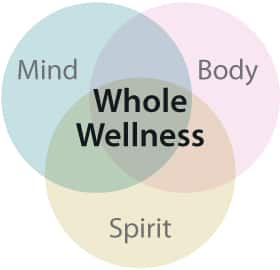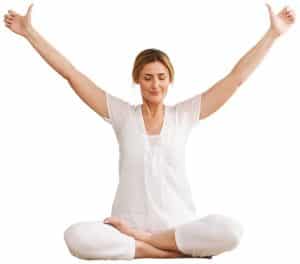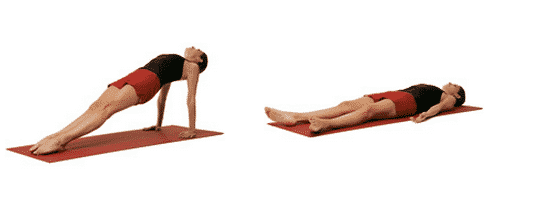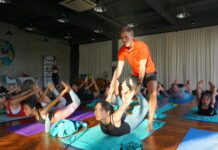
Many people practice yoga to relax and reduce stress but regular yoga practice can actually increase energy.
The stresses and sedentary lifestyle of modern civilization prevent energy from flowing through natural channels in your body; much of your energy becomes blocked in the spine and unable to reach your arms, legs, and brain.
Yoga opens up energy channels in your body…
…optimizing your natural energy sources, especially if you practice it every day.
Healthy people can engage in yoga for more energy. In a study published by the International Journal of Yoga [1], researchers say that holding yoga postures precisely addresses tension and energy blockages in a way that allows energy to flow through the body more readily. ?♀️

Yoga increases energy levels in people struggling with significant illnesses as well
A study published by Duke University Medical Center [2] shows women with cancer who participate in yoga show “significant increases in invigoration”.
 Kundalini yoga is especially useful for increasing energy. Sometimes referred to as shakti or “corporeal energy” this type of yoga is often described as a sleeping serpent lying coiled at the base of the spine.
Kundalini yoga is especially useful for increasing energy. Sometimes referred to as shakti or “corporeal energy” this type of yoga is often described as a sleeping serpent lying coiled at the base of the spine.
Kundalini yoga opens energy channels through breathing techniques and holding special poses for an extended time.
Sample Yoga Routine to Increase Energy
Use this sample yoga routine to increase your energy levels – you will notice the difference almost immediately. Some poses require Breath of Fire, which emphasizes exhalation much like the panting of a dog.
To perform breath of fire, keep your mouth closed and use your diaphragm to breathe rapidly through your nose. The spinal flex, sometimes known as the camel ride…
releases energy that is blocked in the spine ❗
Sit on the floor with your legs crossed and hold your calves or shins. As you inhale, lift your chest forward and up; as you exhale, round your shoulders forward and put your chin to your chest. Start slowly and increase speed as you repeat the motions, continuing for three minutes.
Next, do the ego-eradicator.
Sit with your legs crossed. Curl your fingers and extend your thumbs so both hands appear in the hitchhiking position. Bring your arms up over your head to a 60 degree angle, keeping your back straight.
 Hold this position while you perform breath of fire for one to three minutes. To end, bring your thumbs together over your head, open your fingers then release your hands downward.
Hold this position while you perform breath of fire for one to three minutes. To end, bring your thumbs together over your head, open your fingers then release your hands downward.
Do arm pumps to stimulate energy flow from the spine to the rest of the body. While kneeling on the ground, interlace your fingers in front of you. Inhale while bringing your arms up over your head then exhale while bringing your clasped hands back down to your lap.
Do three minutes of arm pumps in the beginning before working up to seven minutes. To finish, inhale with your arms up and hold your breath for 15 seconds before releasing your arms down.
Move to the stretch pose to encourage energy to distribute itself evenly throughout the body
Sit on the floor with your legs outstretched and grab a big toe with the corresponding hand – grab an ankle or shin if you cannot reach your toes. Inhale while straightening your back and looking straight ahead then exhale, bend at your waist, and lower your head towards your knees. Repeat. Begin this exercise slowly then increase the pace for one to three minutes.

The back platform pose gives all-over energy.
Sit on the floor with your legs in front of you. Lean back slightly and place your hands on the floor about six inches behind your butt, with your fingertips facing your feet. Lift your butt off the floor and drop your head back so that your body is in a straight line. Hold the position and begin a rapid Breath of Fire sequence. Continue for about one minute. To finish, gently lower your body to the floor and rest.
You can use yoga to increase your energy levels ⬆
Yoga can invigorate you, whether you are suffering from a serious illness or just need more energy to get through a day.
CLICK HERE For More Course Inclusions and Our June Main Event
Resource:
http://www.ncbi.nlm.nih.gov/pmc/articles/PMC3193654/
http://www.ncbi.nlm.nih.gov/pubmed/17349503














































